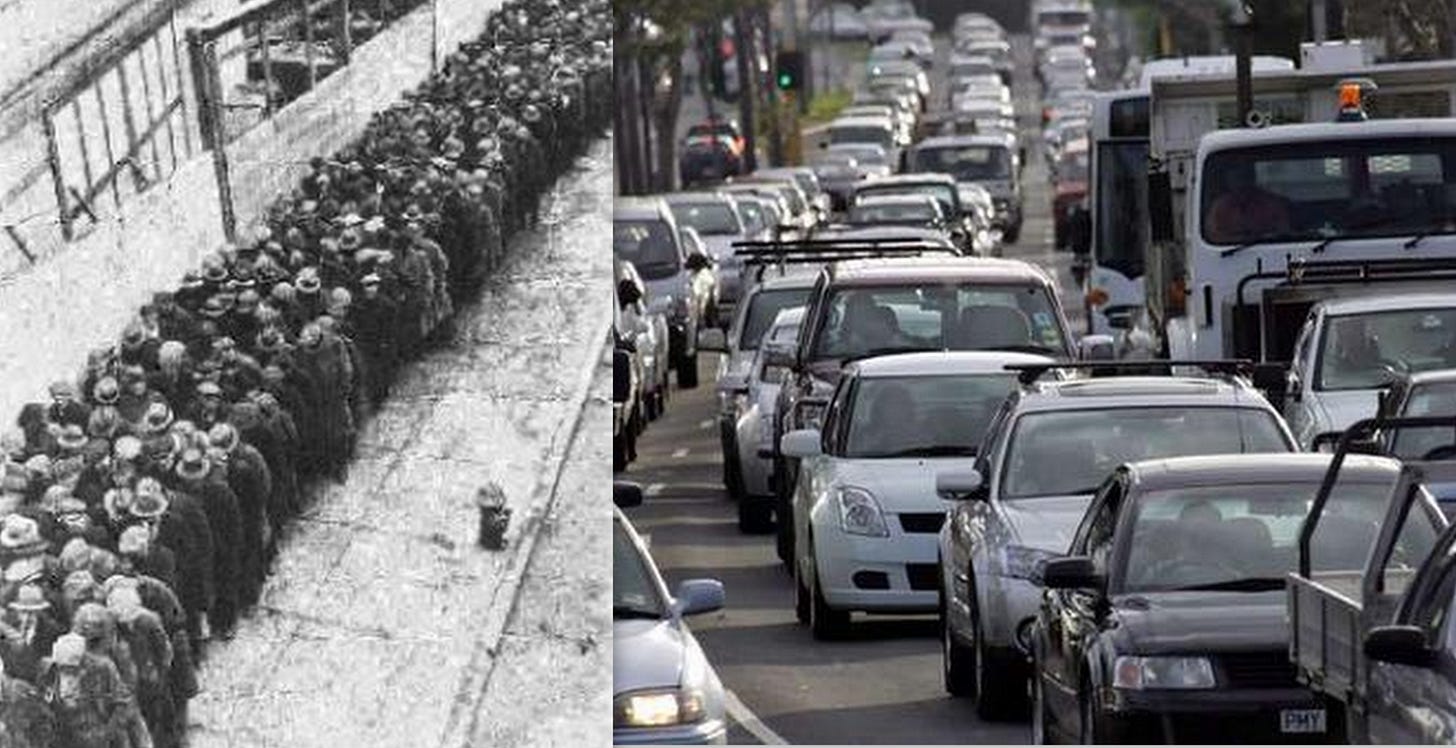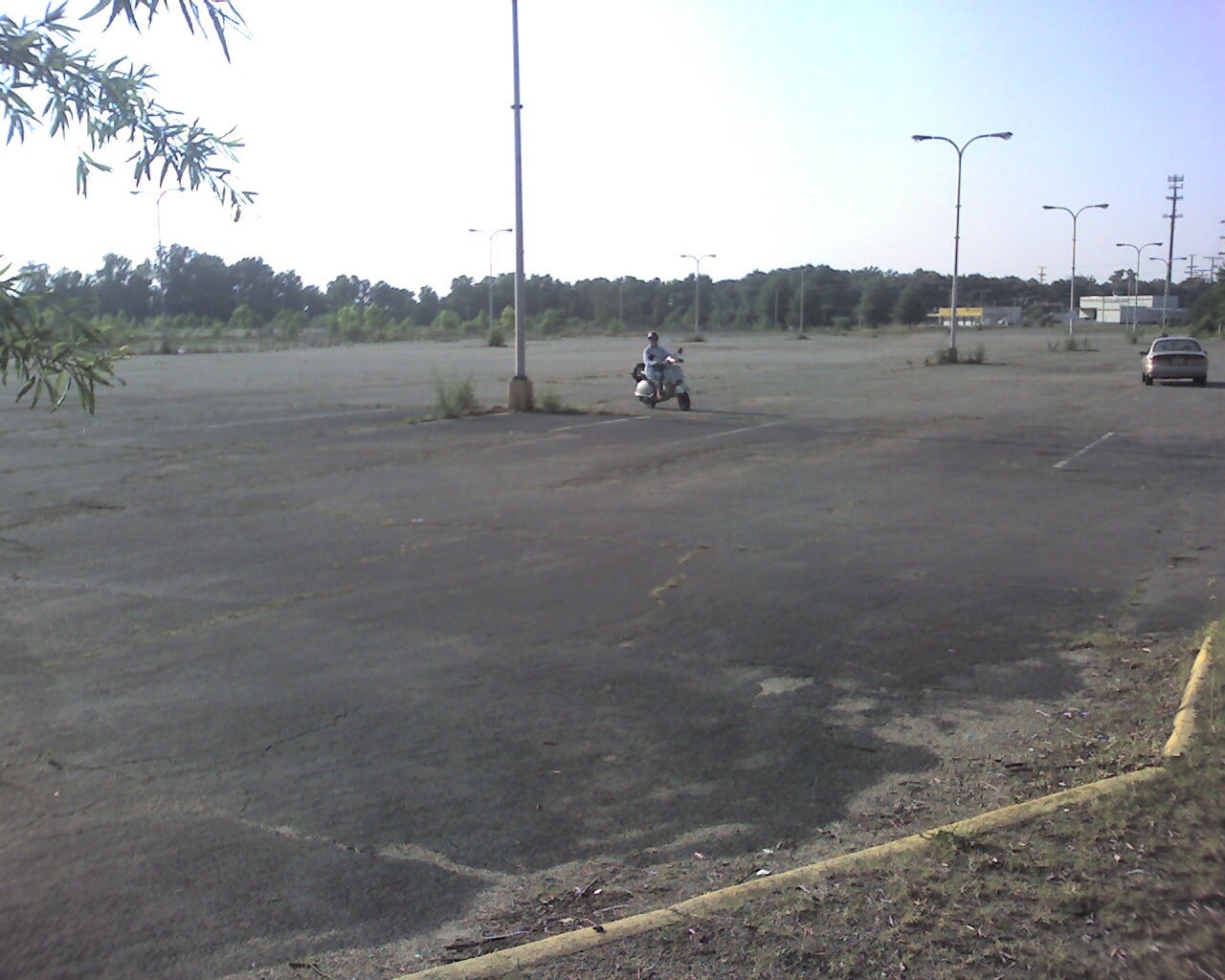The Much-Needed Elimination of Required Parking
And the Need to End Transportation Socialism
In July of 2025, the editorial staff for the Boulder, Colorado Daily Camera newspaper wrote an editorial in favor of the controversial decision by the City to eliminate the long-standing requirement that new development be required to provide parking.
It was not a bad statement. But there are many important things to say that are not said in the essay.
The editorial would have benefited by citing an observation from parking expert Donald Shoup, who once pointed out that “free parking is a fertility drug for cars.”
Regarding my own thoughts missed by the editorial, Boulder, after this much-needed reform, still has way too much free parking, which means the City has a lot of work still to do. Near the top of the list is to convert a big chunk of that existing free parking to paid parking. And aggressively incentivizing property owners and developers to convert a lot of that excess parking to homes, retail, and office.
Shoup also says that by far, the biggest subsidy in America is given to motorists in the form of free parking. The editorial needed to point that out.
I’m convinced that this staggeringly large subsidy exemplifies something crucial. The elephant in the bedroom that no Republican or Democrat has the wisdom or courage to even mention is that ongoing parking scarcity woes and widespread traffic congestion is not caused by insufficient parking or roads that are too narrow. It is caused by Americans applying transportation socialism to parking and roads.
Transportation socialism is a tragic, immensely consequential group hug between the political Right and the political Left.
While nearly all of us understand the monumental failure of socialist economics for most everything in our lives, there is one glaring exception. We are all deeply in love with socialist economics when it comes to motor vehicle transportation. It is, uniquely, a shining – and ruinous – example of a “Kumbaya” for all stripes of political parties in America.
One of the most infamous examples of the economic failure of socialism in the former Soviet Union was the notoriously long bread lines and empty store shelves of that failed regime. A regime that collapsed largely because the Soviets failed to understand one of the most basic, fundamental principles of economics – a principle that leads to economic (and societal) disaster when not understood.
The “solution” to long bread lines (and empty store shelves) seemed obvious to the Soviets – a people infected with an advanced case of pathological empathy:
MAKE MORE FREE BREAD!!
As we saw, this “solution” utterly failed to eliminate long bread lines. Indeed, more free bread – much to the astonishment of the Soviet ideologues – actually worsened the problem. The lines quickly grew even longer.
The experience of the Soviet bread lines exemplifies a basic economic principle that all proponents of socialism fail to understand. And why, throughout history, socialist nations invariably experience economic (and quality of life) misery.
The United States, for over a century, has experienced widespread, seemingly intractable problems when it comes to traffic congestion and “insufficient” parking. Problems inevitably created because for over a century, Americans have stubbornly and aggressively employed socialist economics in our transportation system.
The elephant in the American bedroom is the failure to recognize that the economics of the long Soviet bread lines also applies to the economics of American transportation.
Consider the Soviet “solution” for their bread lines: MAKE MORE FREE BREAD. The American counterpart is our century-long solution to traffic congestion and lack of parking: MAKE FREE ROADS WIDER and BUILD LARGER PARKING LOTS.
The sad results are the same: congestion, like lengthy bread lines, quickly returns (and eventually becomes worse).
Nationwide — like the Soviets — at the federal, state, and local levels, American governments are bankrupting themselves (and therefore ceaselessly raising taxes) because the cost of socialistically widening free roads and expanding free parking lots is ruinously unaffordable.
Why do the “solutions” of more free bread or wider free roads fail?
Anyone who has taken an entry-level course in American economics knows the answer.
It is because any strongly sought-after good or service – be it bread, road space, or parking – must be properly priced to avoid inefficient, excessive use. In this case, when bread or road space is “free,” they are consumed or used excessively to the point of congestion or scarcity, largely because too many people, because the item is “free,” are consuming or using the bread or road space for low-value reasons.
An American example would be someone who drives on a major (and free-to-use) road at rush hour to buy a cup of coffee at rush hour. Such a trip is far lower in value than, say, a commute to work or a frantic trip to a hospital due to a medical emergency.
Therefore, it is inevitable that long bread lines, empty store shelves, or traffic congestion will worsen if they are “free.” There is only one way to avoid such an outcome: the bread, or the TVs on the store shelves, or the roads must be priced so that they are not used inefficiently.
The pathological empathy of the Soviets led them to make more free bread for the “oppressed,” but ended up worsening life for those “oppressed” people they sought to help. Similarly, the pathological, bipartisan empathy of the political Left and Right in America leads us to widen free roads and expand free parking lots for the “suffering” motorist, but has ended up worsening life for the motorists Americans seek to help.
As an aside, we also see bipartisan political support for another form of transportation socialism. In contrast to a free market economy, socialism is exemplified by a society engaging in a heavy-handed command economy, where government imposes mandatory commandments on the use of private property. In the case of transportation, this socialist tool, used by nearly all local governments in America, are local laws that require the mandatory provision of motor vehicle parking as a condition for development approval for a property. Like widening “free” roads (or baking more “free” bread), mandatory parking laws worsen the problem they seek to correct. Housing and commerce become far less affordable. Parking and housing become more scarce.
In addition, there is also a significant increase in per capita car use.
After more than a century of catastrophically using socialist economics in transportation, it is far past time for the American political Left and Right to recognize that such economics worsens transportation problems.
Instead, we must opt for market-based economics to improve conditions. Too much (that is, pathological) empathy fails to work for traffic congestion for the same reasons it fails to work for long bread lines.
Transportation socialism is a tragedy because it has not only made our transportation system (and our community design) far worse over the past century, but has done so in a self-perpetuating way, as exemplified by the strong support of both Democrats and Republicans.




